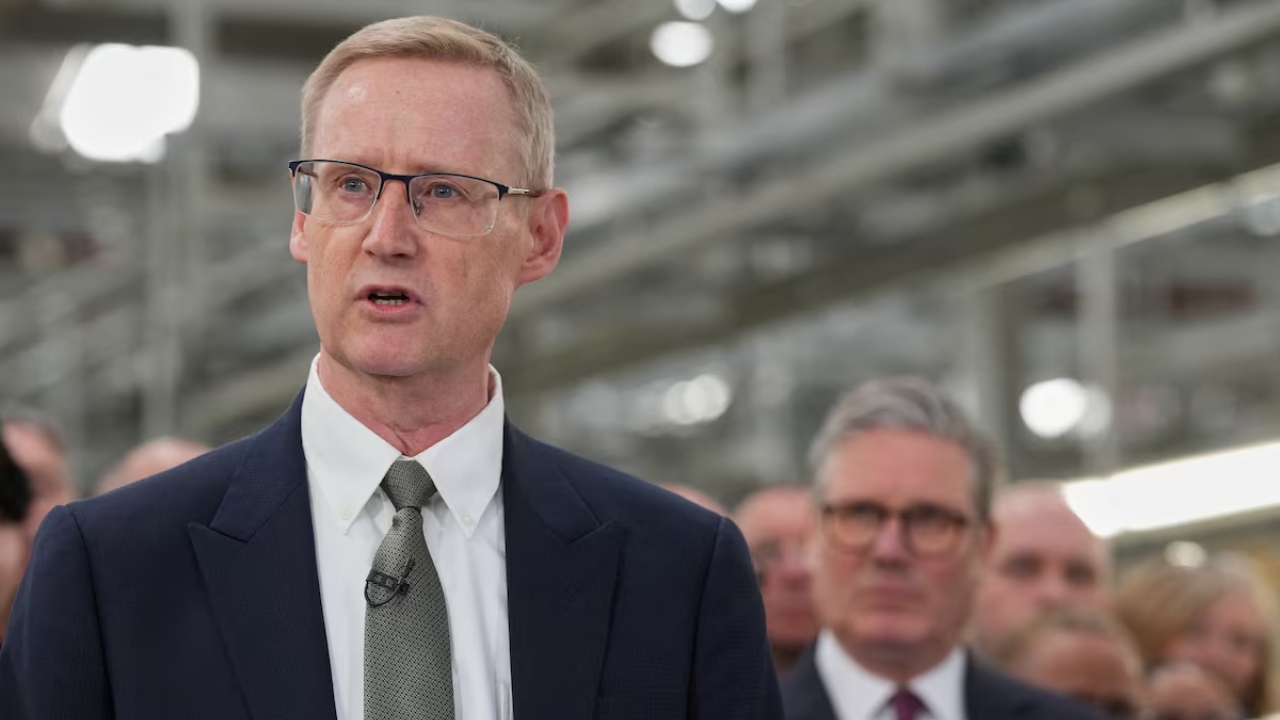Adrian Mardell, Chief Executive Officer of Jaguar Land Rover (JLR), will step down from his role, marking the end of a more than 30-year career with the British luxury automaker. A company spokesperson confirmed the news on Thursday, stating that Mardell had expressed his intention to retire after completing three years in the CEO position. His successor will be announced in due course.
The news was first reported by Reuters and follows Mardell’s significant contributions to JLR’s financial and strategic turnaround under the ownership of Tata Motors, which acquired the company in 2008.
“Adrian Mardell has played a critical role in shaping JLR’s direction during a transformative period for the company,” said a JLR spokesperson. “His decision to retire comes after more than three decades of exceptional service.”
A long-serving leader with transformational impact
Mardell joined JLR in 1990 and held several senior roles over the years. He was appointed Chief Financial Officer (CFO) in June 2019, before becoming interim CEO in November 2022 and later taking on the role permanently. During his tenure as CEO, Mardell oversaw a bold brand repositioning for Jaguar, aligning the storied brand with a future-forward identity focused on electrification and modern luxury.
Under his leadership, JLR posted its strongest operational performance to date, delivering record profits and reducing its debt by £5 billion ($6.6 billion) — a milestone not achieved in over a decade. These financial gains have been seen as a strong endorsement of the company’s ongoing transformation strategy under Tata’s ownership.
In the fiscal year ending March 2025, JLR reported its highest profit in ten years, according to the company’s annual report. Analysts credited Mardell’s disciplined financial approach and product strategy, especially around the Range Rover and Defender models, for the improved margins.
One of the key tests during Mardell’s tenure was managing tariff headwinds in the United States, one of JLR’s most important markets. In April 2025, JLR temporarily paused exports of its British-made vehicles to the US following the imposition of a 25% import tariff by President Donald Trump. The company resumed exports a month later in May, adapting to the new trade environment.
The US accounts for approximately 25% of JLR’s global sales, with strong demand for its high-margin Range Rover and Defender models. While the Range Rover is manufactured in the UK (now subject to a 10% tariff), the Defender is assembled in Slovakia, where exports face a 15% duty.
JLR does not operate any manufacturing plants in the US, and the evolving tariff landscape continues to be a challenge for its supply chain and pricing strategy in the region.
What’s next for JLR?
With Mardell’s departure, attention now turns to Tata Motors, which is expected to announce a successor in the coming weeks. The next CEO will face the challenge of sustaining JLR’s operational momentum while pushing further into electrification, sustainability, and global market resilience.
JLR has been actively investing in EV capabilities, with plans to launch multiple electric models over the next three years. Industry watchers suggest that the next phase of leadership will likely come with a renewed focus on digital innovation and global competitiveness.
Until then, Mardell’s legacy stands as one of financial discipline, brand rejuvenation, and strategic clarity—closing a chapter that not only stabilised JLR but set the groundwork for its future growth.
